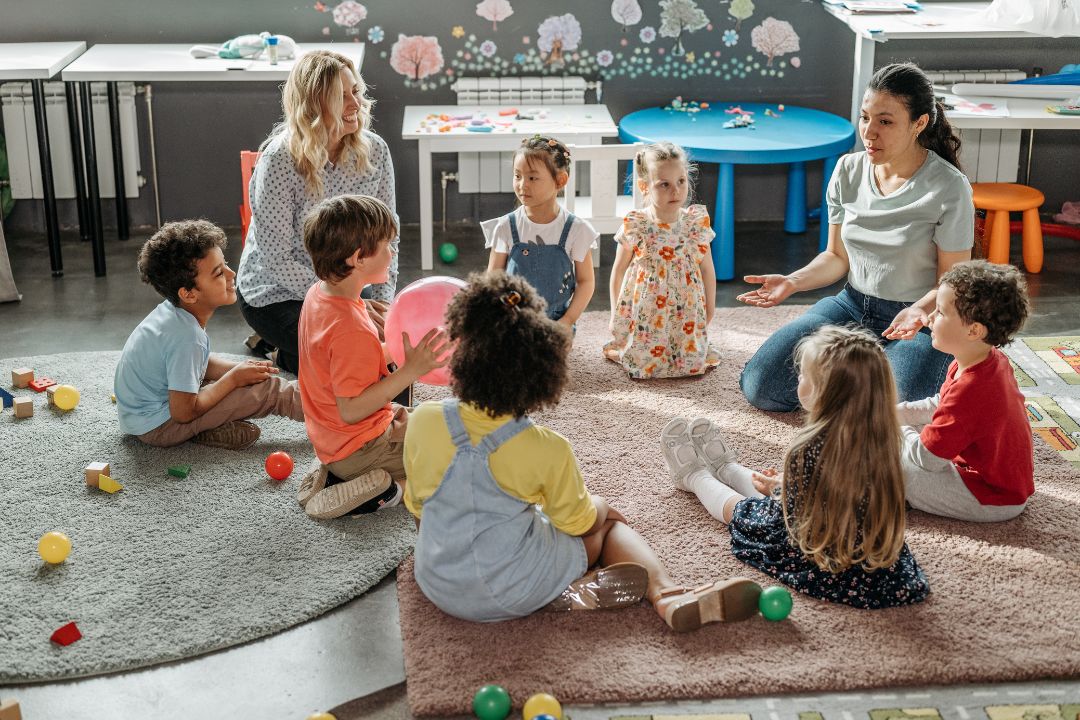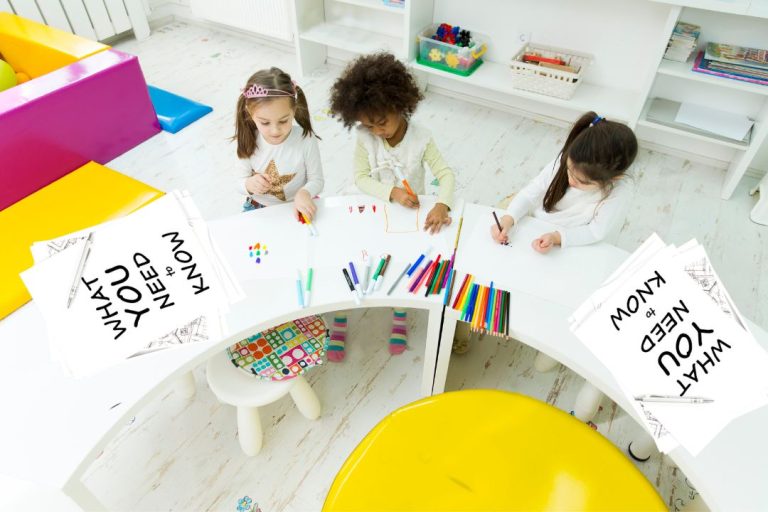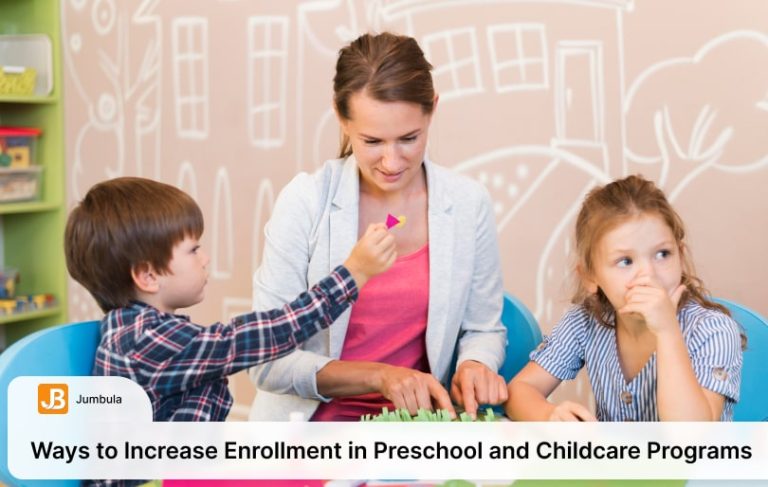What is the Expected Phonological Awareness Benchmark Skill for Children Entering Kindergarten

The expected phonological awareness benchmark skill for children entering kindergarten is the ability to recognize and manipulate sounds within spoken words. This includes segmenting, blending, and identifying rhymes and syllables.
Phonological awareness is a critical pre-reading skill that helps children develop the foundational knowledge necessary for decoding and understanding written language. As children enter kindergarten, they should have a basic understanding of sounds within words, including the ability to isolate and manipulate individual sounds, recognize rhyming words, and identify syllables.
This skill set allows them to make connections between letters and sounds, paving the way for early literacy success. By developing phonological awareness, children strengthen their ability to recognize and work with the sounds of spoken language, laying the groundwork for future reading and spelling capabilities.
Phonological Awareness In Kindergarten
Phonological awareness is a crucial skill for children entering kindergarten, laying the foundation for their future reading and language development. In kindergarten, phonological awareness skills are further refined and built upon, setting the stage for proficient literacy. Understanding the concept and importance of phonological awareness in kindergarten is essential for ensuring children are equipped with the necessary skills to thrive in their educational journey.
Understanding The Concept
Phonological awareness in kindergarten refers to a child’s ability to recognize and manipulate the sounds of spoken language. This encompasses various skills, including identifying and manipulating individual sounds (phonemes) within words, recognizing rhyme and alliteration, and understanding syllables and onset and rime. These foundational skills enable children to develop a strong awareness of the sound structure of language, paving the way for proficient reading and writing.
Importance In Early Education
The development of phonological awareness in kindergarten is of paramount importance as it serves as a strong predictor of future reading success. By honing these skills, children are better prepared to decode words, recognize spelling patterns, and comprehend text. Additionally, fostering phonological awareness lays the groundwork for fluency, comprehension, and overall literacy proficiency, providing children with a solid foundation for academic achievement.
Unveiling Phonological Awareness Benchmarks
Discover the anticipated phonological awareness benchmark for kindergarten entry, essential for assessing early literacy skills in children. Identifying specific phonological skills equips educators and parents to support young learners’ language development. Understanding these benchmarks is crucial in promoting literacy readiness and enhancing academic success.
What Is The Expected Benchmark For Entering Kindergartners
Phonological awareness is a critical skill for young children as they develop their literacy abilities. For children entering kindergarten, there are specific benchmarks for phonological awareness that educators and parents can look for as indicators of early literacy success. Understanding these benchmarks can help provide the necessary support and intervention to ensure children are on track for reading readiness.
Critical Skills Assessed
When entering kindergarten, children are expected to demonstrate certain phonological awareness skills that lay the foundation for future reading and writing development. These critical skills include:
- Recognizing and producing rhymes
- Identifying and manipulating syllables in spoken words
- Distinguishing individual sounds (phonemes) in words, such as the beginning and ending sounds
- Blending and segmenting sounds in words
By assessing these skills, early childhood educators and parents can identify areas where a child may need additional support in developing their phonological awareness, paving the way for stronger literacy skills as they progress through their academic journey.
Recognizing Vital Milestones
As children enter kindergarten, it is crucial to recognize the vital phonological awareness milestones they should achieve. These benchmarks serve as fundamental indicators of a child’s readiness to develop literacy skills effectively. By recognizing these milestones, parents and educators can provide the necessary support to ensure children’s successful language and literacy learning journey.
Rhyming And Sound Matching Abilities
Rhyming and sound-matching abilities are essential phonological awareness skills for young learners. Mastery of these skills signifies the child’s ability to identify and manipulate phonemes within words. Good comprehension of rhyming words and their matching sounds is a foundational step towards developing strong phonemic awareness, a key component of successful reading and spelling. Parents and educators can foster this skill through engaging activities such as nursery rhymes, puzzles, and wordplay games.
Syllable Counting And Blending Skills
Syllable counting and blending skills are imperative proficiencies that children entering kindergarten should possess. The ability to count the number of syllables in a word and blend them together is pivotal for developing word recognition and decoding abilities. These skills lay the groundwork for effective reading fluency and comprehension. Encouraging children to clap out syllables and blend them to form complete words can strengthen their phonological awareness and contribute to their overall literacy development.
Key Indicators Of Readiness
Key indicators of readiness are crucial in evaluating a child’s phonological awareness and their preparedness for kindergarten. By understanding the expected phonological awareness benchmark skills for children entering kindergarten, we can better support their development and success in early literacy. Below, we delve into key indicators that demonstrate a child’s readiness and proficiency in phonological awareness.
Sound-letter Correspondence
Sound-letter correspondence is an essential skill for children entering kindergarten. It involves the ability to recognize and associate specific sounds with their corresponding letters. Children should be able to understand that each letter represents a distinct sound and recognize letter-sound relationships.
Recognizing Beginning Sounds
Another significant indicator of readiness is the ability to recognize beginning sounds in words. Children should be capable of identifying the initial sound in a word and understanding how it corresponds to the associated letter or letters.
Strategies To Foster Phonological Skills
Interactive Games And Exercises
Interactive games and exercises are powerful tools for enhancing phonological awareness in young children. These activities engage children in fun and stimulating ways, helping them develop crucial skills while enjoying the learning process. Incorporating interactive games and exercises into daily routines promotes active participation and aids in the retention of phonological concepts.
Role Of Caregivers And Preschool Programs
The role of caregivers and preschool programs is instrumental in fostering phonological skills in children. Caregivers play a crucial part in providing a supportive environment for practicing phonological activities, while preschool programs can offer structured interventions and tailored instruction to enhance phonological awareness in young learners.
Frequently Asked Questions Of What Is The Expected Phonological Awareness Benchmark Skill For Children Entering Kindergarten
What Is Phonological Awareness And Why Is It Important For Kindergarten Readiness?
Phonological awareness is the ability to recognize and work with sounds in spoken language. It is important for kindergarten readiness as it helps children develop crucial pre-reading skills such as rhyming, and segmenting sounds in words, which are essential for learning to read and write.
How Can Parents Help Their Children Improve Phonological Awareness Skills At Home?
Parents can help improve their children’s phonological awareness skills by engaging in activities such as reading aloud, playing rhyming games, and singing nursery rhymes. These activities help children become more aware of the sounds in words, which is essential for developing strong literacy skills.
What Are Some Indicators That A Child May Need Additional Support With Phonological Awareness Skills?
Some indicators that a child may need additional support with phonological awareness skills include difficulty recognizing rhyming words, struggling to blend sounds into words, and challenges with identifying the beginning or ending sounds in words. Parents and educators should be aware of these signs and seek appropriate support.
Is There A Connection Between Phonological Awareness And Later Reading Success?
Yes, there is a strong connection between phonological awareness and later reading success. Children who have strong phonological awareness skills are better equipped to decode and understand written language, leading to improved reading proficiency. Developing phonological awareness in early childhood can significantly benefit a child’s literacy development.
Conclusion
Phonological awareness plays a crucial role in a child’s readiness for kindergarten. By mastering the expected benchmark skills such as rhyming, blending, and segmenting, children can develop a strong foundation for reading and language acquisition. Parents and educators can support this development through engaging and interactive activities that promote phonological awareness.
Embracing these essential skills will empower children for a successful educational journey.

With over 20 years of experience in early childhood education, Jane brings a wealth of knowledge to Classroom Journey. She specializes in play-based learning and has a passion for inclusive education.






